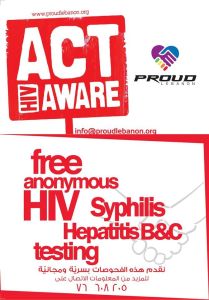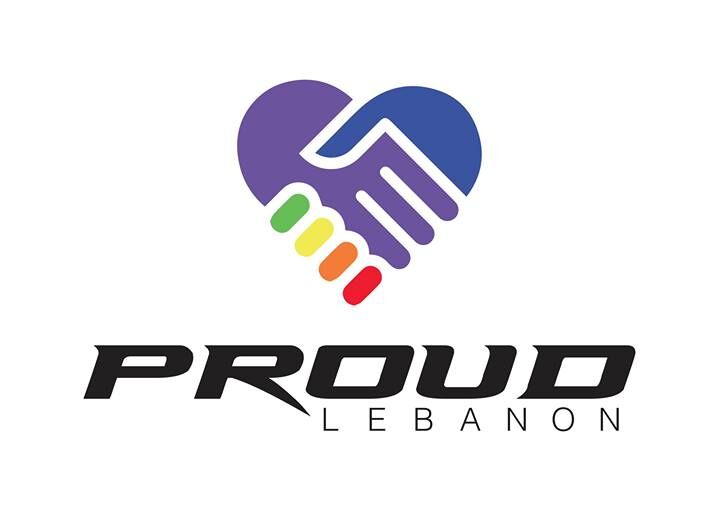The HIV epidemic is threatening to explode within Lebanon's gay community. The problem is being exacerbated by the continuing flow of refugees from Syria.
Bertho Makso has every reason to be proud of what he and his team have achieved in such a short space of time. Just a year ago, the LGBT organisation "Proud Lebanon" was able to move into its own premises with funding from a European foundation and employ a social worker and a doctor, among others, albeit for a limited period of time. The fact that gays, lesbians and trans* people now have a permanent point of contact in Beirut where they can get counselling and help is a benefit for the community that should not be underestimated.
However, the team of around 25 volunteers and permanent employees cannot and will not be satisfied. They feel responsible for LGBT people in the country, but have long since reached the limits of what can be achieved financially and in terms of staffing. And sometimes the simplest things are lacking, especially when it comes to education and prevention of HIV and other sexually transmitted diseases.
"One of our biggest wishes is to be able to offer hepatitis vaccinations, but that is currently an unattainable dream," says Bertho. But he also has a simpler wish on his list: Lubricant for condoms. "And that's no joke," Bertho adds. It's understandable that his tone now sounds slightly sarcastic. "The government has provided us with condoms, which we are allowed to distribute in trendy locations. But these are cheap products from India and of dubious quality. And then the condoms should only be sold in direct dialogue." In the meantime, Proud Lebanon is now at least allowed to pack the rubbers in baskets in the bars and clubs so that everyone can take them as they please. "If we put 50 out, all we have to do is count to ten and the things are gone," reports Bertho. Absurdly, there is no lube to distribute with the rubbers. Not that the health authorities are withholding it from them: it is simply not available in Lebanon. Imports are expensive and difficult due to the state of war. "Instead of reducing the risk of infection for people by distributing condoms, we are inadvertently exposing them to a risk because there is a danger that the rubber will break," says Bertho angrily.
There is no traditional prevention work in Lebanon

Traditional prevention work, as we know it here in Germany from the German AIDS service organisation Deutsche AIDS-Hilfe and the Federal Centre for Health Education, does not exist in Lebanon. To be more precise: no longer. A state campaign was simply not continued for cost reasons. And yet it would be more important than ever. This is because HIV infection rates are on the rise, particularly within the gay community: since Proud Lebanon started offering the rapid test, suspicions have become a terrible certainty. It is currently estimated that around eight per cent of all gay men in the country are HIV-positive. "The epidemic within the gay scene has now reached proportions that can only be compared to the worst times in Europe in the 1980s," says Bertho. He fears that the virus could spread like wildfire if something is not done soon. And at the moment, too little is happening. There is not only a lack of money for educational material, but also a lack of medical care, among other things.
The HIV rapid test was provided free of charge by the health authorities, but Proud Lebanon has to pay for the hepatitis and syphilis tests itself and is dependent on financial support from international organisations.
Anyone who tests positive receives psychological support at Proud Lebanon. "But everything else is a problem," says Bertho. "If the person concerned is poor, they will have little chance of receiving HIV treatment. We ourselves don't have the financial means to pay for the medication and regular examinations. Sometimes we can persuade doctors to treat one or two patients free of charge, but this only works in individual cases.
But even those who can afford HIV treatment do not automatically have secure access to the medication. This is because the dramatic political situation in Syria and the tense situation in Israel are having an impact on Lebanon. "Our healthcare system is just as unstable as in Ukraine," says Bertho. The import of medicines is repeatedly interrupted, so it can happen that certain preparations are temporarily unavailable. People who involuntarily interrupt their HIV treatment for this reason must therefore fear that they will develop resistance to the active ingredients.
The need for HIV medication is growing with each new day. This is because Lebanon is experiencing an unrelenting influx of refugees, particularly from Syria, but also from Palestine, Sudan and Iraq. The dwarf state, which at 10,400 square kilometres is just half the size of Hesse, has around four million inhabitants. One million refugees are currently seeking refuge there.
Refugees account for a large proportion of the positive HIV and hepatitis tests carried out by Proud Lebanon. They not only need food and a roof over their heads, but also psychological counselling. What they have experienced, what they have survived, cannot usually be described in words. The fact that they managed to escape at all often seems like a miracle.
"I admire their courage," says Bertho. "Many of them have literally been through hell and some of them are badly injured. Their bodies are covered in haematomas from head to toe - unmistakable traces of unbearable torture. "They were hung by their hands from a roof and left to dangle there for hours."
The influx of refugees not only brings Proud Lebanon to the brink of its capacity, but also causes problems with the LGBT community in its own country. You can find out why this is the case in the second part of the report by Axel Schock.

Proud Lebanon is currently looking after several hundred queer refugees in Beirut. The available financial and human resources are no longer sufficient. Donations are therefore urgently needed. A crowdfunding platform has been set up for this purpose. https://life.indiegogo.com/fundraisers/1313819
Even small amounts help!









